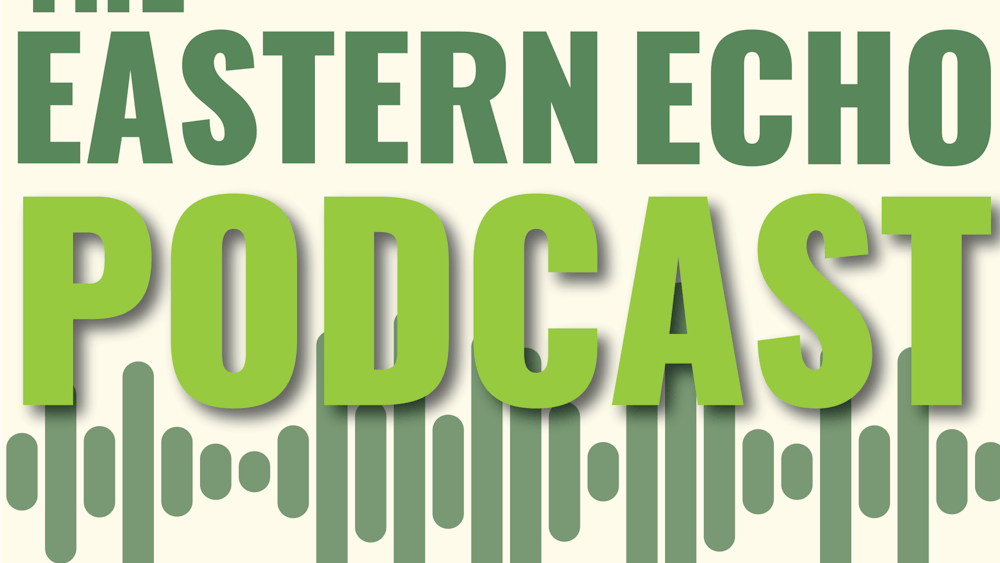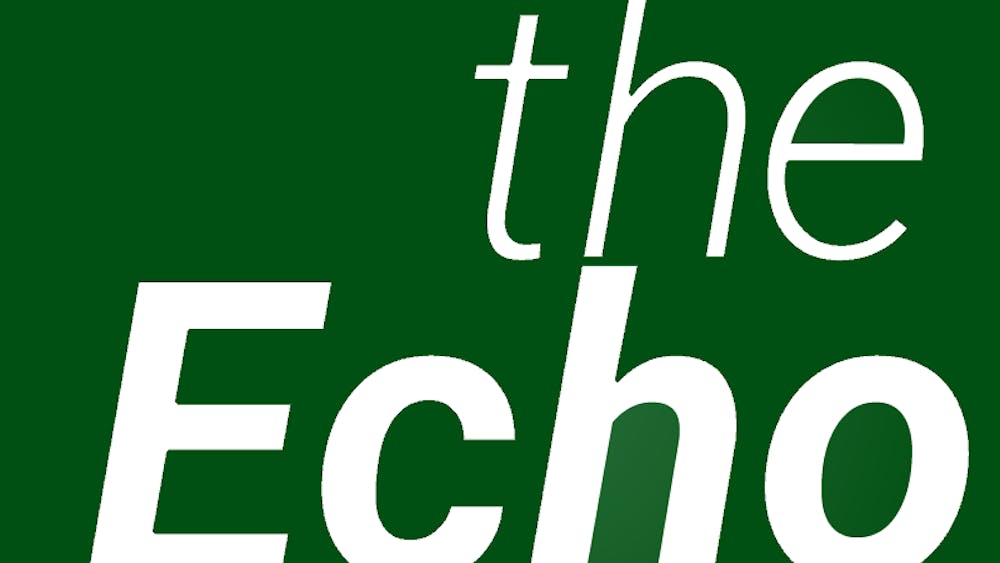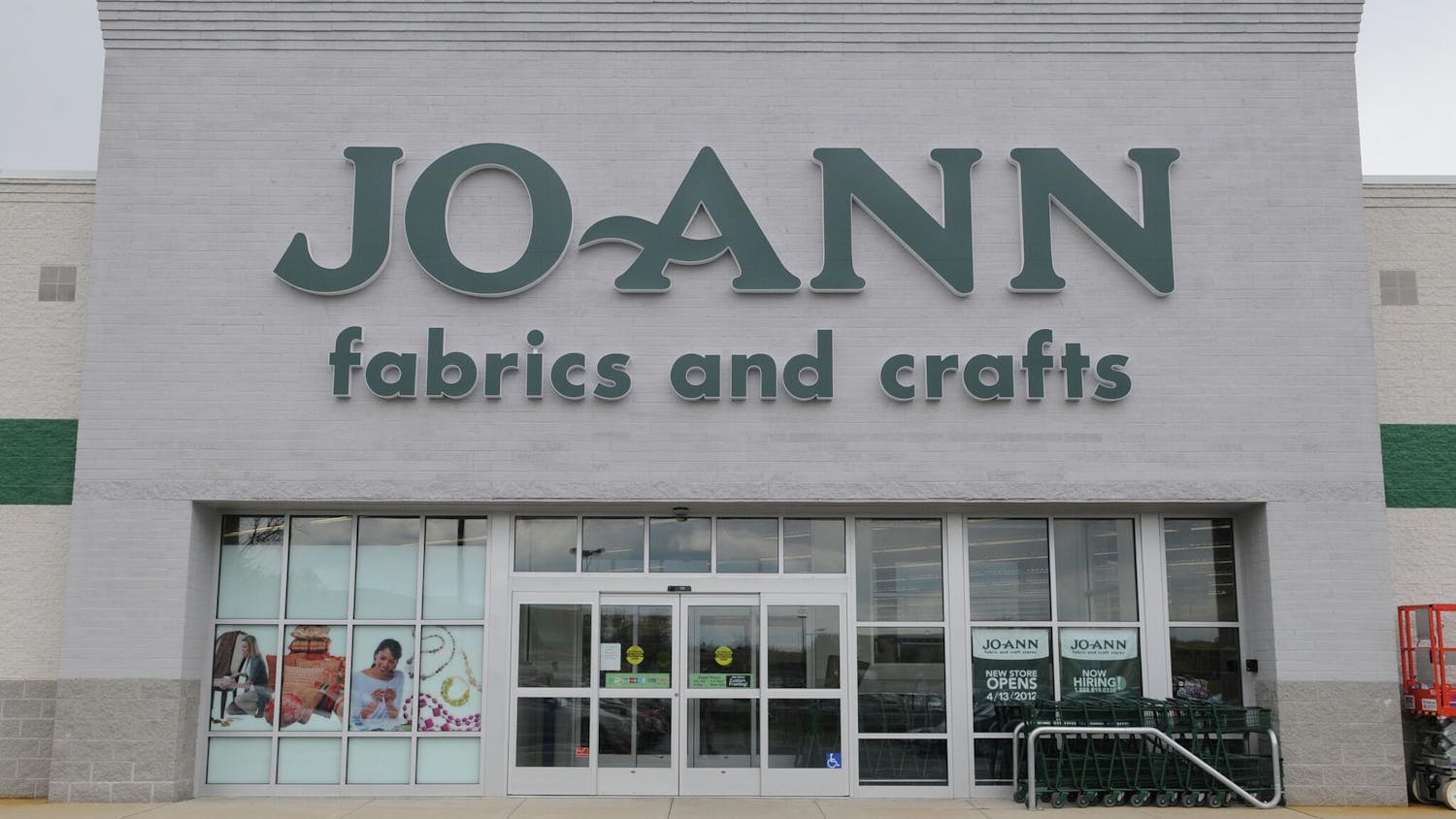The Eastern Michigan University recycling program began in the late 1990s with a grant, but the grant has since ended and all money for recycling and waste comes out of the grounds budget, which due to budget cuts continues to shrink.
With the hope of creating more sustainable practices on EMU’s campus, students and faculty created the President’s Sustainability Commission, two years ago. The Sustainability Commision uses the Sustainability Tracking, Assessment, ad Rating System (STARS) to measure sustainability efforts.
“We are looking at an environmental disaster that is slowly creeping up that people are kind of ignoring or not talking about . . . not talking about it does not get rid of it,” Thomas Kovacs, the Chair of the Commission and an EMU Professor, said. “The more you can remind people that they should be cognizant of what they are doing, be aware of what they are doing, at all times. Awareness then promotes action on their part.”
EMU does put efforts into recycling
The frequent rumor among students that the recycling from the bins on campus doesn't get recycled isn’t true. According to EMU’s Waste Management report, in 2017 the amount of waste diverted from landfills was 9.1% of 2,263.1 tons of waste. So far in 2020 (January through August), 6.5% of 1,237.3 tons of recycling and waste has been diverted from landfills.
“That rumor [that recycling ultimately ends up in landfills] comes back to me all the time and I don’t know who started that,” Christopher Grant, EMU’s Grounds Manager, said. “I’m not going to say that it never does because it is up to the custodian to get that recycling . . . to the right pick up spot. Once it’s in the pick up spot . . . I have a guy that brings it back to the physical plant. We have a compactor that's just for cardboard, paper, and plastic. No trash, just recyclables go into that compactor.”
Out of cardboard, plastic, paper, glass, and aluminum, cardboard is consistently recycled the most. In 2019, 149.6 tons of cardboard were recycled at EMU.
The University has made changes over the years in order to improve recycling efforts. Recycling bins have been strategically placed next to trash cans, large recycling bins have been made available for community use, and on occasions, like student move-in week, instructional signs are hung to promote recycling. EMU lists all of the recycling resources available on their website.
EMU only has one person on staff that sorts through the recyclables. If there are too many non-recyclable items, like food, contaminating the recycling bin, that whole bin may get thrown out.
“We do our best to recoup everything we can and that is not just the general stuff like paper, cardboard, plastic and glass; we do the metal, we do tires, we do light bulbs,” Grant said.
However, without direct funding for recycling and waste efforts, there is not much room for improvement. The University lacks a large recycling staff or a large designated space. Grant, who has been working at EMU for 30 years, still remains hopeful that one day there will be greater funding.
“I hope so. That would be great if they were able to, but it seems like every year they are wanting us to cut more, and then COVID-19 did not help us at all. It is getting worse at the moment. I would like to think that someday it will get better and we will be able to set some things aside for things like that, but in the very near future I do not see it happening yet,” Grant said.
The President's Sustainability Commission
There are 18 students, faculty, staff and administrators that are members on the Sustainability Committee, that make recommendations to EMU’s president on ways to make the campus sustainable. The resolutions that are proposed are based on visible needs, but will soon also be based on the STARS rating.
One resolution that was proposed in 2019, that is in the hopes of being passed by the president, would restrict EMU to only make partners with external private companies or contractors that have sustainability as one of their considerations. The goal of the resolution is to improve the university’s STARS score and, therefore, sustainability efforts.
“I feel that [the resolution] is extremely important because that means that everything the university does from here on out will have sustainability as a major consideration,” Kovacs said.
The STARS framework was created by the Association for the Advancement of Sustainability in Higher Education (AASHE) and is used by 1,011 institutions across the world, according to their website. There are 63 criteria checkpoints across four categories: academics, engagement, operations, planning and administration, with a bonus category of innovation and leadership.
“It is not just environmental stuff, it's also equity. It's about how you run the university, how you purchase things. It is very comprehensive,” Kovacs said.
COVID-19 has slowed down EMU’s STARS rating process. Currently over half of the criteria are finished. Once they are finished, they can make a recommendation to go through the process of certifying the sustainability rating framework. Then, while using the framework’s rating, the committee will be able to determine where money and improvement is most needed.
“We do a good job here. As I have been doing these ratings, I have been impressed by what I have seen, but we certainly have lots to improve,” Kovacs said.
How the community can help
In the past, student groups at EMU have volunteered to monitor recycling bins, ensuring that waste doesn’t end up in them. However, currently no organization holds this responsibility.
“What I've done is tell these student groups that any of the returnable cans or anything you see in there, you can take them for your organization. It doesn't bother us because we are just going to throw them into the general recyclable stuff. We’re not taking them back for a dime a piece,” Grant said.
The EMU Sustainability Commission is always looking for more people to get involved. Positions include volunteering in recycling efforts, social media relations, developing marketing materials, supporting events, fundraising and more.
“If you always have sustainability in the back of your mind, you can always make improvements. Being more aware of the impact of their actions would be the best thing that student could do . . . Being more aware and cognizant of their impact on the environment,” Kovacs said.
For more information, visit EMU’s Sustainability website here.










